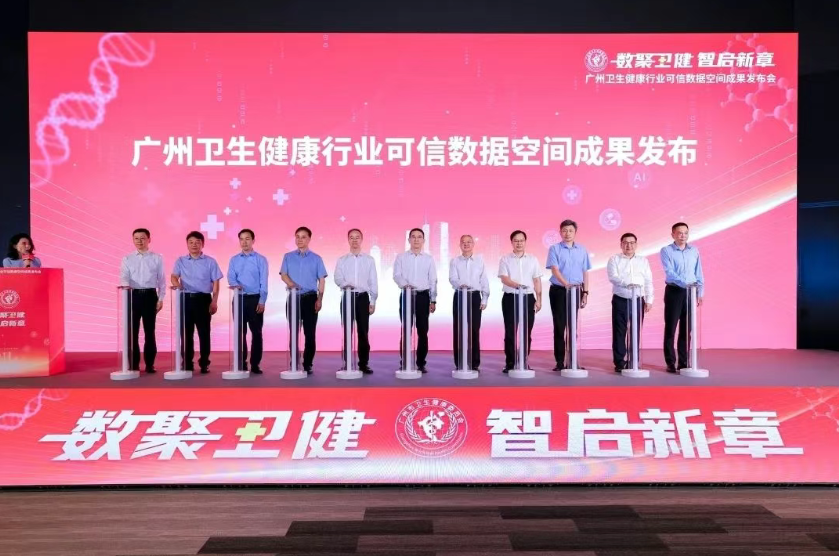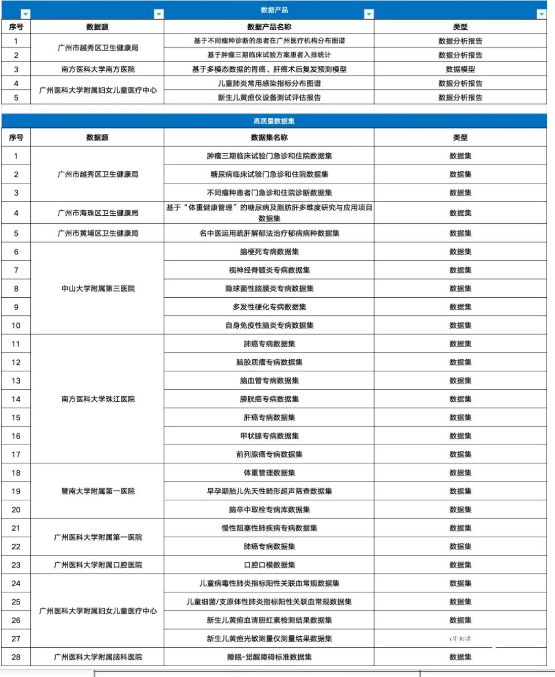In the afternoon of May 8, Guangzhou released the first batch of results of the credible data space for the health industry, including five data products, including the distribution map of common infection indicators for children's pneumonia, the statistics of patients entering and discharging in the clinical trial scheme for endocrine diabetes, and 28 high-quality data sets, including cerebrovascular disease, liver cancer, cerebral infarction death, and the weight index data set for the elderly at the grass-roots level.


The first batch of achievements in the trustworthy data space of Guangzhou's healthcare industry
Guangzhou has abundant medical and health resources, with outpatient volume reaching 187 million in 2024. The potential of medical data resources is enormous, but the development and utilization of medical data face many challenges. Not only is medical data scattered among various medical institutions, making it difficult to achieve effective integration and sharing, but the security and privacy issues of data also constrain its circulation and application. In addition, the limited computing resources and low utilization rate of medical institutions greatly restrict the trustworthy circulation and high-level utilization of health data.

Video address by Zhong Nanshan, winner of the "Medal of the Republic" and academician of the CAE Member
To address these issues, in July 2024, the Guangzhou Municipal Health Commission and Guangzhou Shuke Group jointly launched the construction of a trusted data space for the Guangzhou health industry. Following the principle of "original data not leaving the domain, data available but not visible", it supports the legal, compliant, and secure circulation of medical data and promotes efficient cooperation between hospitals and enterprises.
Medical institutions can rely on space to innovate in general practice, specialized diseases, and convenient services, and solve the pain points of "three long and one short" medical treatment. Pharmaceutical and medical device companies and research institutions can rely on space to innovate scenarios in pharmaceutical and medical device research and development, clinical trials, and applications, achieving a full chain upgrade of the biopharmaceutical industry, shortening the pharmaceutical and medical device research and development cycle, and empowering the high-quality development of the biopharmaceutical industry.
It is reported that in recent years, China has successively issued a series of policy documents such as the "Three Year Action Plan for Data Elements X" (2024-2026) and the "Action Plan for the Development of Trusted Data Space (2024-2028)", aiming to promote the circulation and application of data elements. As an important central city and technological innovation hub in China, Guangzhou is accelerating the construction of a modern industrial system called "12218". The Municipal Health Commission is actively planning the layout of "artificial intelligence+life and health" and has released the local standard "Health Data Collection Specification" for Guangzhou.
According to the plan, Guangzhou will focus on promoting four major areas of work in the next stage, including: creating a new model of industry data sharing, utilizing Guangzhou's economic, medical resources, and spatial construction advantages, and achieving a high degree of agglomeration of new quality productivity in the medical and health field through data trading and artificial intelligence applications. Expand data resources and product services, achieve connectivity with the Guangzhou Health Big Data Center, create data products and services for several typical application scenarios, develop high-value applications, and serve no less than 100 enterprises. Build a more comprehensive operational system, further improve spatial management processes and mechanisms, and create a new development pattern of medical and health data sharing, platform co construction, and revenue sharing in Guangzhou. Build a more active industrial ecosystem, introduce no less than 50 third-party data service institutions, and gradually interact with other cities in the Guangdong Hong Kong Macao Greater Bay Area.
Article source: Guangzhou Municipal Health Commission
相关推荐
- 2026 Guangzhou Medical Expo Scheduled for August! Building the Core Engine for the Greater Bay Area's Healthcare Industry. 2025-11-07
- Full-chain Empowers Industrial Innovation! The 2025 Guangzhou Medical Expo Successfully Concludes Today 2025-08-24
- Grand Opening of 2025 Guangzhou Medical and Health Industry Expo: Jointly Paint a New Blueprint for Health and Play the March of Industrial Endeavor 2025-08-22
- Over 400 hospitals and enterprises gather in the City of Rams! Guangzhou Medical Expo has become a highland for the first launches of innovative pharmaceuticals and medical devices. 2025-06-13

